Over the decades, the foreign affairs work of the Central External Relations Commission has become one of the core factors, not only helping to consolidate political position but also creating momentum for sustainable economic development.
Over 75 years of establishment and development, the Central External Relations Commission has left a deep mark in the country's foreign affairs development journey, actively contributing to enhancing the national position and promoting Vietnam's international relations, thereby creating peace, stability, and bringing the country to development and integration.
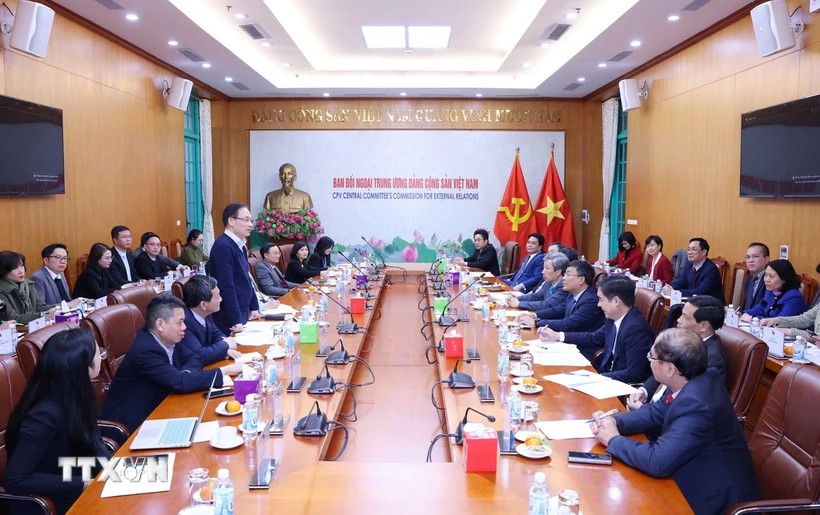 |
| Mr. Le Hoai Trung, Secretary of the Party Central Committee, Head of the Central External Relations Commission, worked with Heads of Vietnamese Representative Agencies Abroad for the 2024-2027 term on the afternoon of February 27, 2024 in Hanoi. (Photo: Phuong Hoa/VNA) |
Actively contribute to mobilizing the world's people to support and help Vietnam protect its independence, sovereignty and territorial integrity.
After the August Revolution in 1945, when it had just gained independence, the Democratic Republic of Vietnam had to face countless difficulties and challenges, with internal and external enemies threatening the young government.
President Ho Chi Minh and our Party sought every way to fight diplomatically with the goal of prolonging the peace period to consolidate the government. In the official diplomatic channel, Vietnam took clever and flexible steps, demonstrated through the Preliminary Agreement (March 6, 1946), the Vietnam-France Interim Agreement (September 14, 1946)...
However, all our efforts could not prevent the French colonialists from invading our country again. Faced with that “critical” situation, President Ho Chi Minh and our Party realized that we must strengthen relations with countries, organizations, and progressive political parties in the world to gain support from the international community for our nation’s just struggle. First of all, we must strengthen solidarity and mutual assistance with our two neighboring countries, Laos and Cambodia.
Therefore, on November 1, 1949, the Central Committee Conference of the Indochinese Communist Party established the Central Laos-Cambodia Department with the task of helping the Party Central Committee monitor and study the Cambodia-Laos revolution, and provide accommodation and education for cadres of the neighboring country. This was the predecessor organization of the Central Foreign Affairs Department.
During this period, the mark of the Party's leadership expressed through the Party's foreign relations channel contributed significantly to the victory at the negotiating table of the Geneva Conference in 1954, ending the 9-year long resistance war against the French colonialists.
After 1955, the Party's foreign relations channel had expanded functions and tasks. That is, to help the Central Executive Committee study and monitor the situation of fraternal parties to learn from the experiences of the proletarian revolution and the building of socialism; to help contact fraternal parties in countries that had not yet gained power in order to help and handle relations with other parties in the world, depending on their capabilities.
Through different names according to each revolutionary period such as Central Laos-Cambodia Committee (1955), Central Foreign Liaison Committee (1958), Foreign Affairs Committee (1960), the Central Foreign Affairs Committee was gradually supplemented with additional functions and tasks.
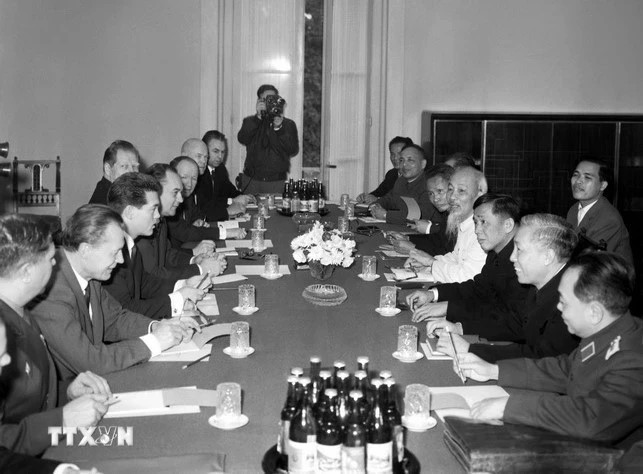 |
| On January 8, 1966, in Hanoi, President Ho Chi Minh led a delegation of the Vietnam Workers' Party to hold talks with a delegation of the Communist Party of the Soviet Union, led by member of the Presidium and Secretary of the Party Central Committee Alexander Nikolayevich Shelepin, who visited Vietnam. (Photo: Van Luong/VNA) |
During this period, the country's diplomatic front was a combination of Party foreign affairs, State diplomacy and people's diplomacy. Party foreign affairs always took the lead in every important decision on foreign policies and guidelines. The main task of the Central Foreign Affairs Commission was to carry out Party foreign relations; coordinate and assist the two brotherly countries of Laos and Cambodia; and maintain relations with the national liberation movements in Asian, African and Latin American countries.
It can be said that from the very first days of its establishment until the struggle against colonialism and imperialism and the unification of the country, the Central Foreign Affairs Commission has made positive contributions to mobilizing people around the world to unite, support and help the Vietnamese people to protect independence, sovereignty and territorial integrity; to oppose the embargo policy of the US and hostile forces; to consolidate and strengthen relations with Laos; to help the Cambodian people escape genocide; to strengthen relations with the Soviet Union, socialist countries, communist parties, workers, revolutionary and progressive forces in the world.
Promote international relations, enhance national status
After the historic victory in the spring of 1975, a new era opened in Vietnam. However, the work of overcoming the consequences of war and building the country by our people took place in extremely difficult conditions: the country was heavily devastated by war, had a very low economic starting point, a backward economic structure, weak infrastructure...; was besieged, embargoed...; then had to continue fighting in two wars to protect the southwestern border and the northern border. Since the late 70s of the 20th century, the country fell into a serious socio-economic crisis.
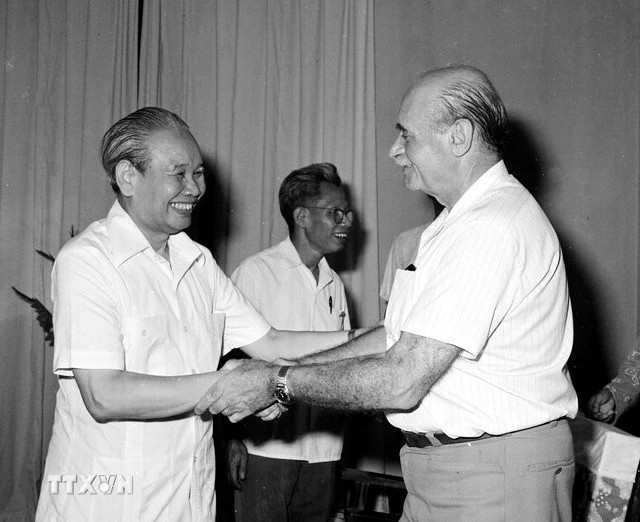 |
| Comrade Xuan Thuy, Secretary of the Party Central Committee, Head of the Party's External Relations Commission (now the Central External Relations Commission) received General Secretary of the Communist Party of Canada William Kashtan during his friendly visit to Vietnam (August 3, 1978). (Photo: The Trung/VNA) |
In that context, the Central External Relations Commission has monitored and synthesized the world situation to help the Central Committee formulate the foreign policy of the Party and State; at the same time, directly deploy the relations of our Party with revolutionary parties and movements around the world, thereby, taking advantage of the support of international friends to help Vietnam gradually overcome difficulties.
The 6th Party Congress in 1986 initiated a comprehensive national renovation, which adjusted the foreign policy to multilateralize and diversify foreign relations on the basis of maintaining independence and self-reliance; gradually forming and developing an independent, self-reliant, peaceful, cooperative and developmental foreign policy, an open, multilateral, diversified foreign policy, proactively and actively integrating into the international economy; at the same time expanding international cooperation in other fields in the spirit of "Vietnam is a friend and reliable partner of countries in the international community, actively participating in the process of international and regional cooperation."
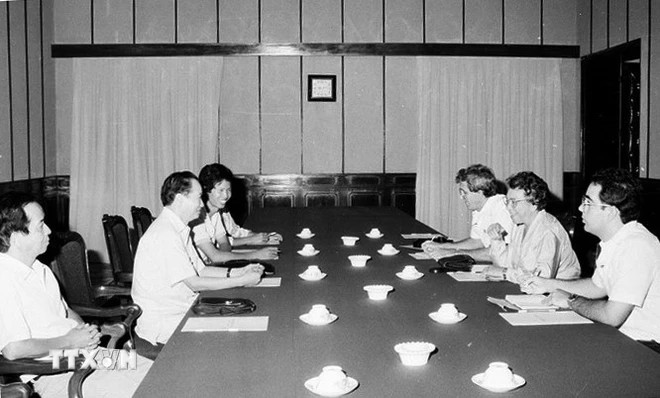 |
| Comrade Hoang Bich Son, Head of the Central External Relations Commission, received Comrade Melba Hernandez, member of the Central Committee of the Communist Party of Cuba and Director of the Center for Asian and Oceanian Studies of the Central Committee of the Communist Party of Cuba, on a friendly visit to Vietnam (October 24, 1988). (Photo: Kim Hung/VNA) |
Currently, the Central External Relations Commission is an advisory body, assisting the Central Executive Committee, directly and regularly the Politburo and the Secretariat in the field of foreign affairs; organizing the implementation of the Party's foreign relations; assisting the Politburo and the Secretariat in leading and directing people's foreign affairs work and uniformly managing foreign affairs activities in the system of party agencies, mass organizations and people's organizations (according to Decision No. 36-QD/TW dated October 22, 2021 of the 13th Politburo on the functions, tasks, powers and organizational structure of the Central External Relations Commission).
The Central External Relations Commission has directly participated in building and developing an independent, self-reliant, peaceful, cooperative and developmental foreign policy through resolutions of the 6th, 7th, 8th, 9th, 10th, 11th, 12th and 13th National Congresses of the Party.
Over nearly 40 years of innovation, especially since 2011, the Party's foreign affairs work has been carried out actively, proactively, effectively, with focus and breakthroughs, both bilaterally and multilaterally, effectively contributing to the overall results of international integration.
On the bilateral level, the Party's foreign relations have developed quite extensively. Our Party has expanded relations with ruling parties, political parties, and major opposition parties in important partner countries. To date, the Communist Party of Vietnam has established relations with 247 political parties in 111 countries. The forms and contents of Party channel relations are increasingly diverse and more substantial, such as: high-level meetings, theoretical seminars, policy dialogues, political consultations, cadre training, signing cooperation agreements with parties, etc.
On the multilateral level, the Communist Party of Vietnam has proactively and actively participated in and promoted its role well at multilateral political party forums, both at the regional and international levels.
At the regional level, the Communist Party of Vietnam actively participates in the International Conference of Asian Political Parties (ICAPP) mechanism and has been elected as a permanent member and a key member of ICAPP for many years.
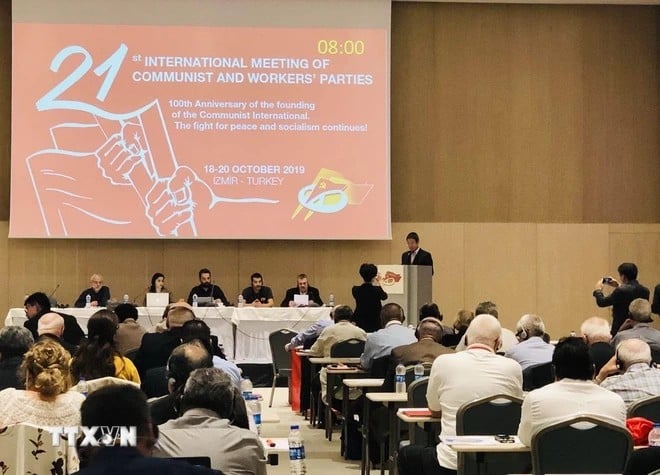 |
| Delegation of the Communist Party of Vietnam attended the 21st International Meeting of Communist and Workers' Parties in Türkiye from October 18-20, 2019. (Photo: VNA) |
At the international level, the Communist Party of Vietnam is a prestigious member of the annual International Meeting of Communist and Workers' Parties (IMWCP). This is the most important multilateral mechanism of communist and workers' parties in the world.
Thanks to its important contributions at multilateral political party forums, the Party's prestige, position and trust in political parties have been increasingly enhanced. Most political parties in and outside the region have positively assessed the role and contributions of our Party in efforts to promote solidarity, consensus and coordination in the activities of forums in a more dynamic and practical direction.
On that basis, the Communist Party of Vietnam has gained increasingly widespread support from parties on many issues of significance to national interests.
Regarding international integration implementation through people's foreign affairs, in the context of the country's increasingly deep international integration, unions and people's organizations have actively participated in the international integration process, becoming members of many international and regional cooperation mechanisms; cooperating in many diverse fields: economy, society, culture, education, environment...
Bilateral and multilateral activities on the people-to-people diplomacy channel contribute to enhancing understanding, friendship and cooperation between our people and people of other countries, contributing to building a friendly social foundation to support the implementation of foreign policy and international integration.
Over the decades, the foreign affairs work of the Central External Relations Commission has become one of the core factors, not only helping to consolidate the political position but also creating momentum for sustainable economic development for the country. The strategic foreign affairs activities of the Central External Relations Commission contribute to maintaining a peaceful and stable environment in the country, creating favorable conditions for Vietnam's socio-economic development.
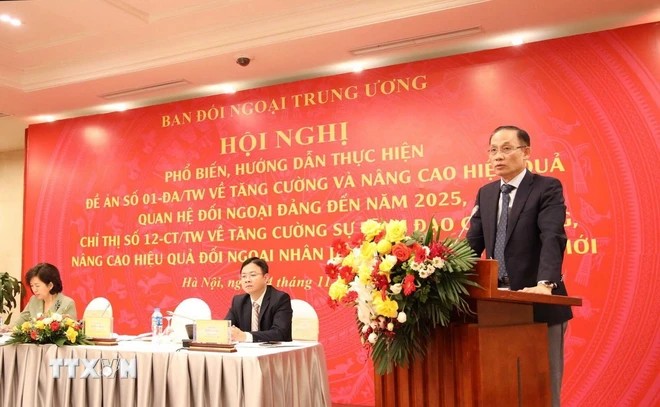 |
| The Central External Relations Commission held a conference to disseminate guidelines for implementing the Project on Party foreign relations and Directive 12 on people-to-people diplomacy on the morning of December 24, 2023 in Hanoi. (Photo: VNA) |
In particular, during the period of innovation and international integration, the open foreign relations of the Central Foreign Affairs Commission have helped Vietnam break the siege and embargo, gradually participating in international economic organizations such as ASEAN, APEC, WTO... Thanks to that, Vietnam has increasingly received support and economic cooperation and investment from many large countries, creating a solid foundation to improve people's lives.
The 75th anniversary of its founding is an opportunity to look back at the important contributions of the Central External Relations Commission to the foreign affairs of the Party and the nation.
The glorious tradition of the past 75 years will continue to be the driving force for the Central External Relations Commission to strive to better fulfill its tasks, contributing to the sustainable development and enhancing the prestige of Vietnam in the new era.
According to Vietnamplus.vn
https://www.vietnamplus.vn/ban-doi-ngoai-trung-uong-dong-gop-tich-cuc-vao-viec-nang-cao-vi-the-quoc-gia-post987826.vnp
Source: https://thoidai.com.vn/ban-doi-ngoai-trung-uong-dong-gop-tich-cuc-vao-viec-nang-cao-vi-the-quoc-gia-206568.html












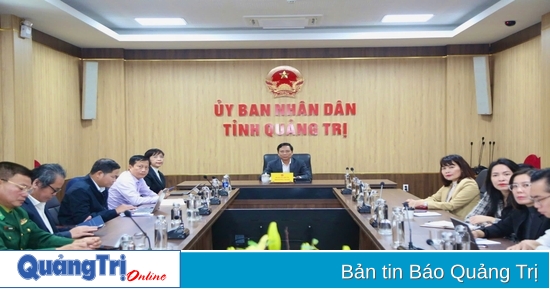
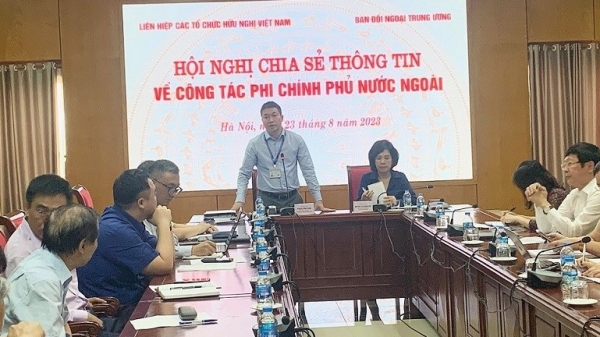

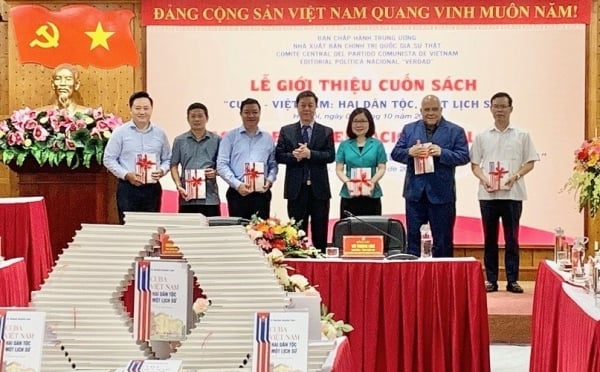
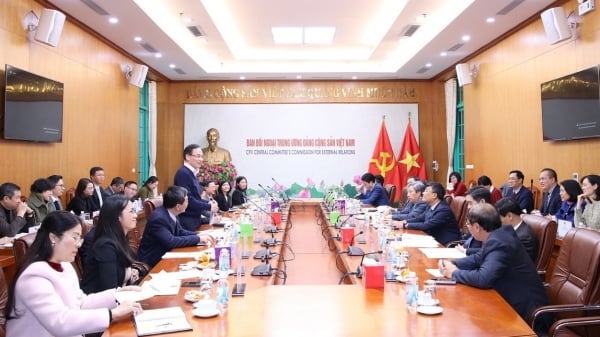
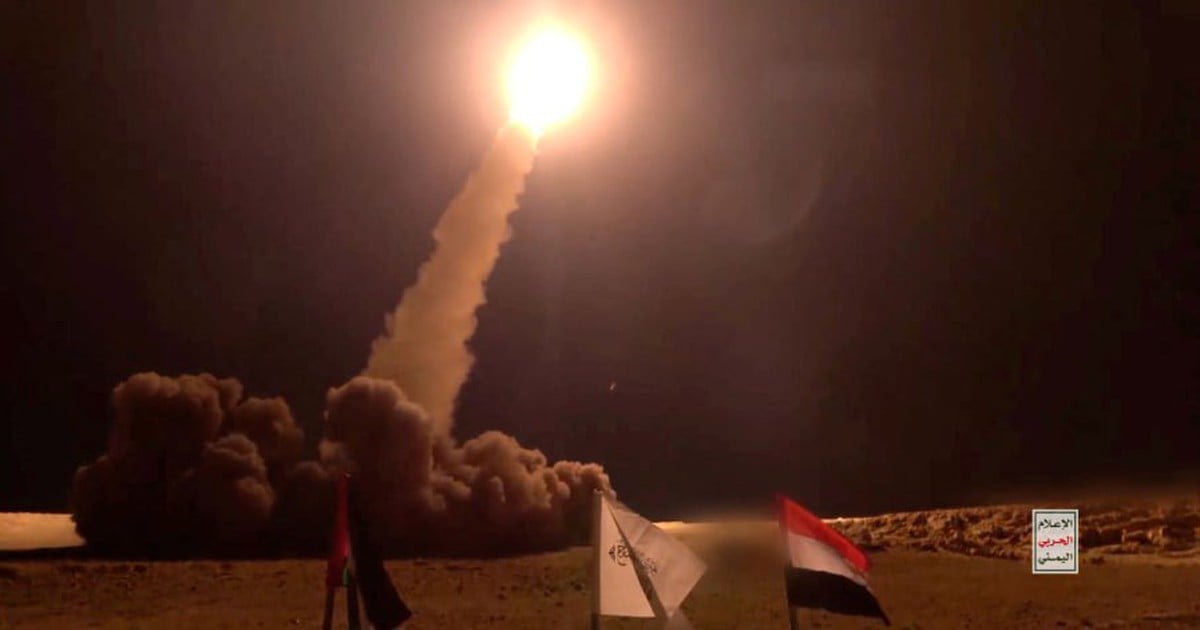



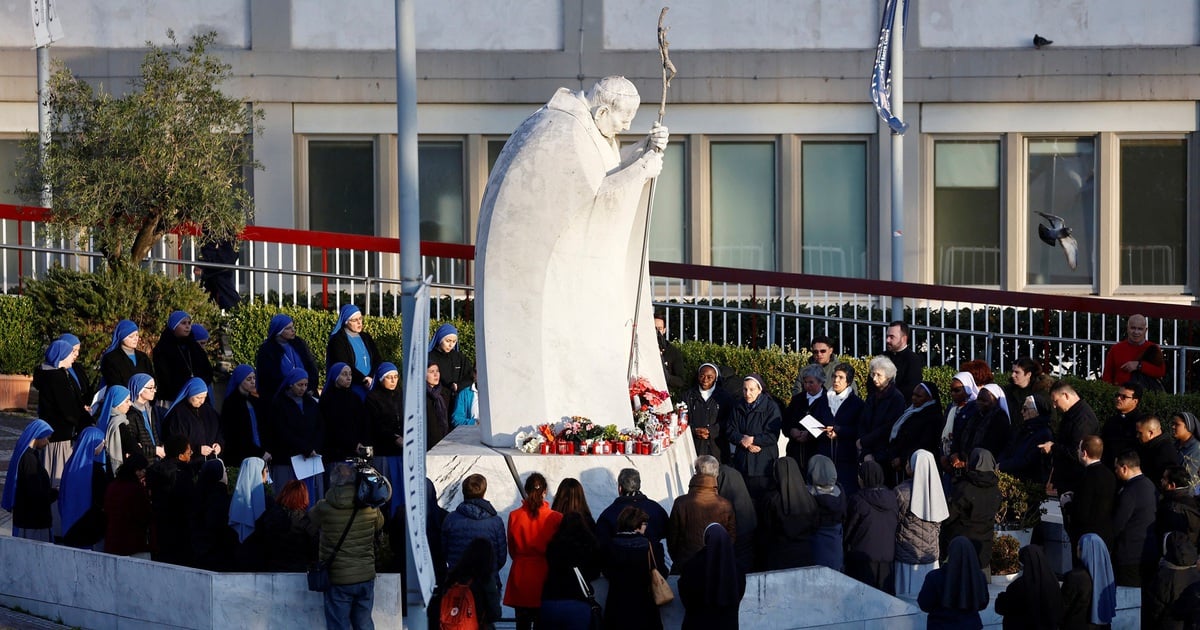
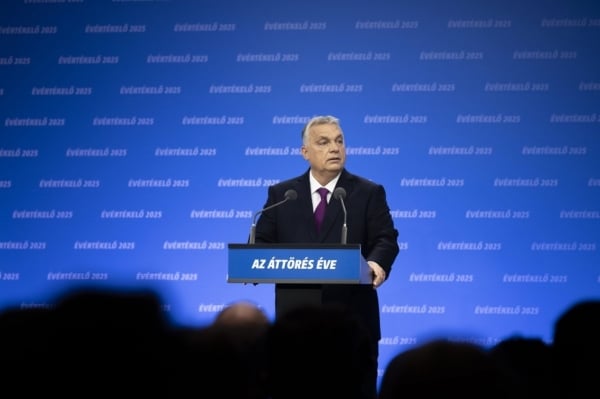
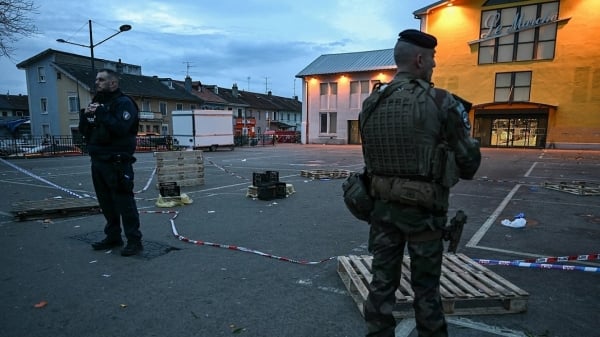
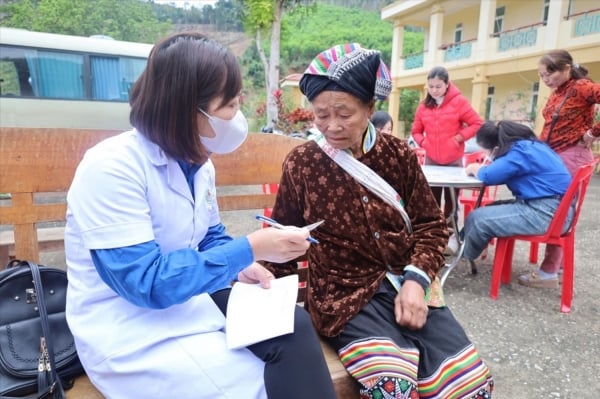
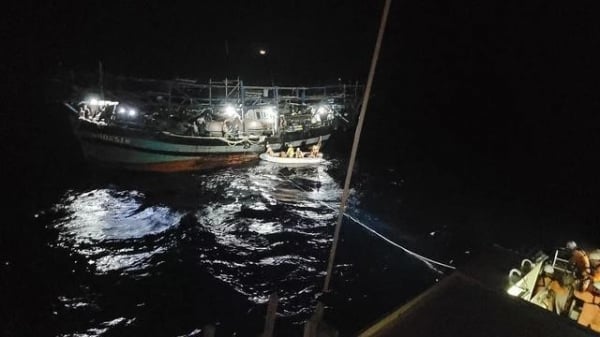
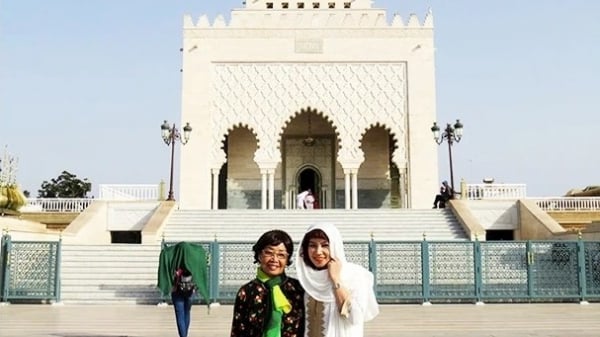
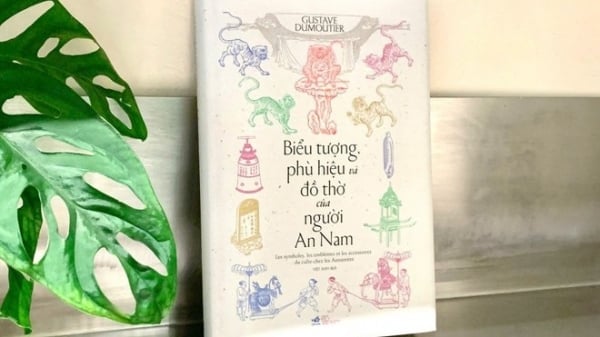
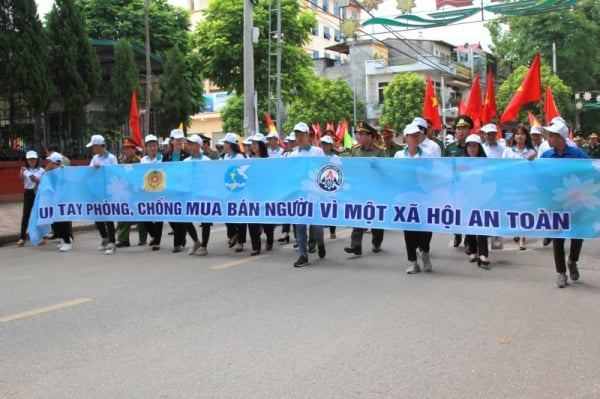
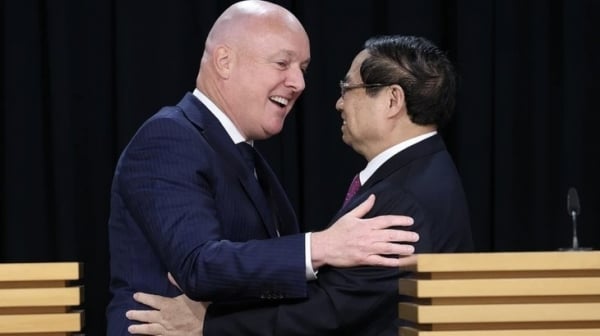




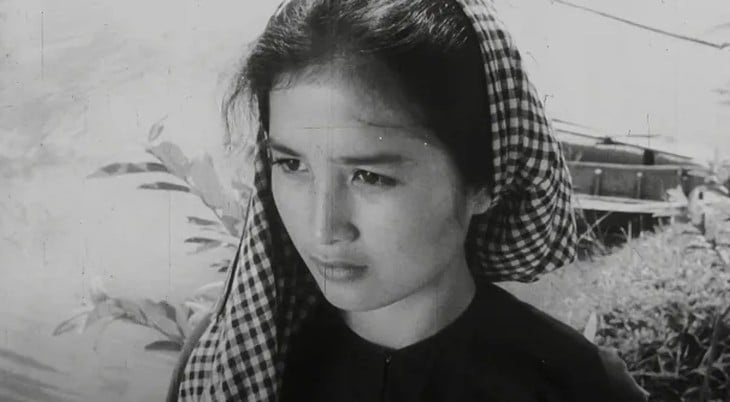

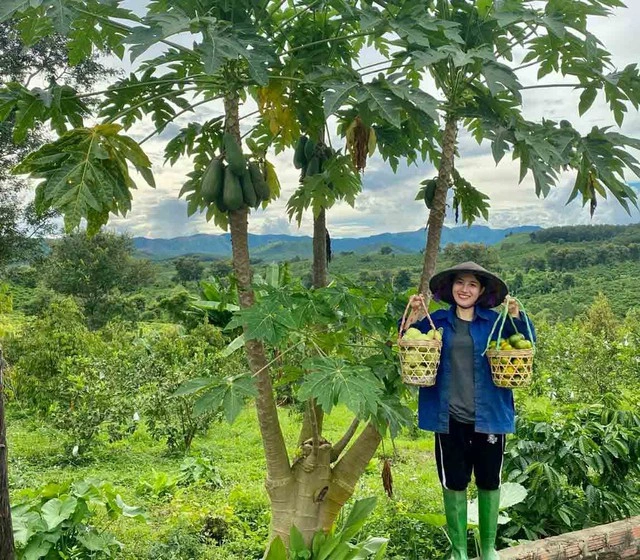


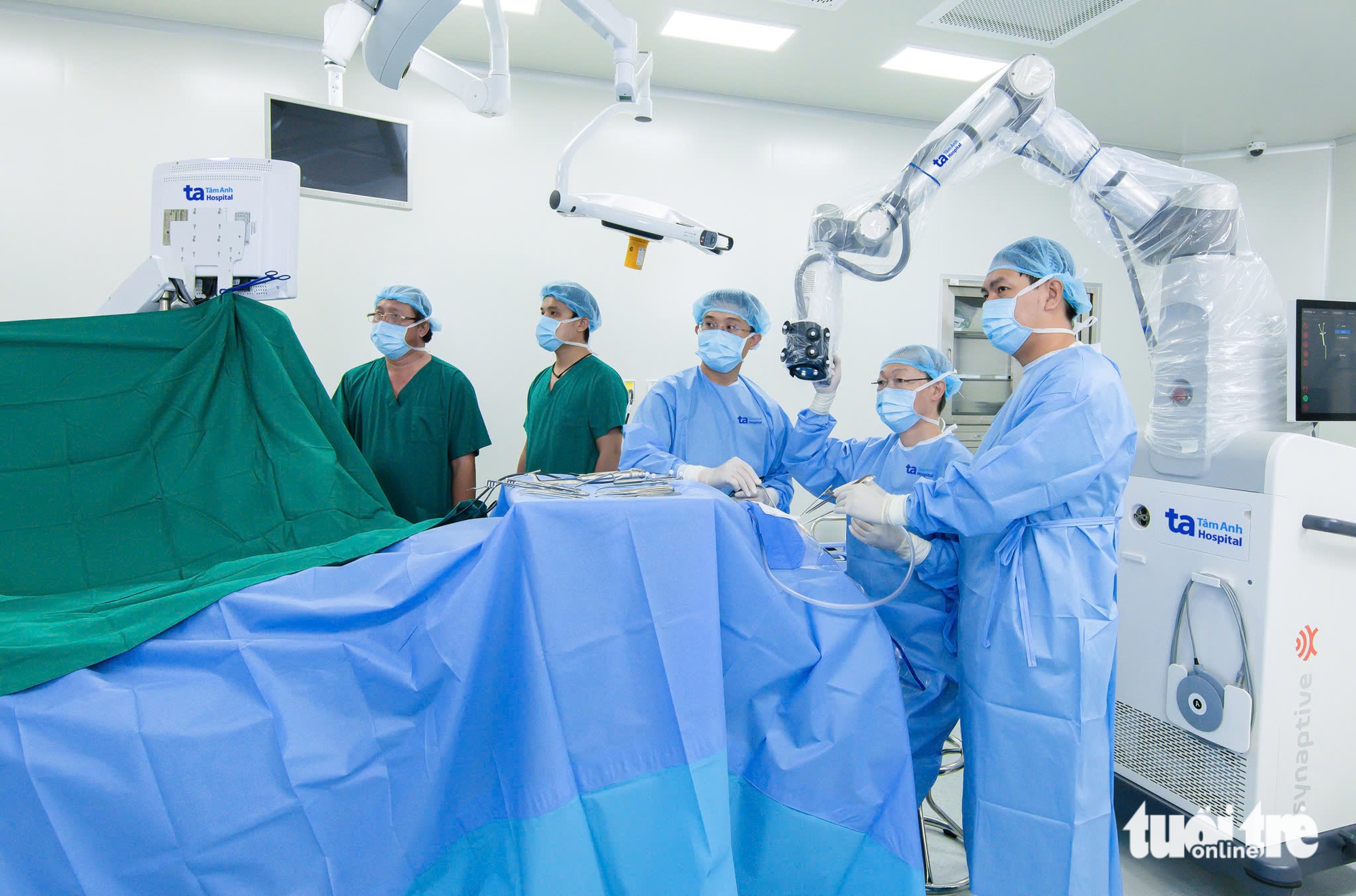

Comment (0)